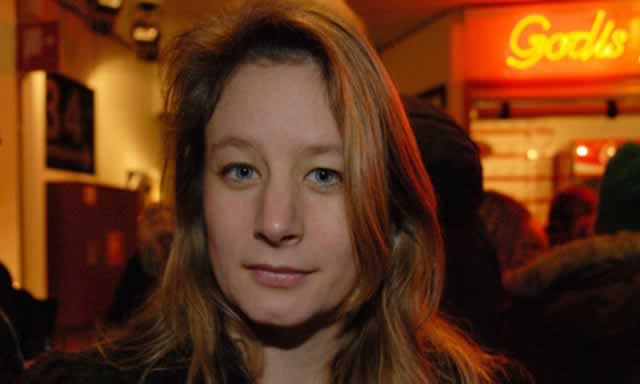Empowering orphans, mentally ill

Stanely Mushava Features Correspondent
A hungry child approaches Chipo Muteve for a coin while her younger sister and their mentally ill mother wait expectantly in the background.
Although it is supposed to be a familiar sight, the scene moves Chipo and unsettles her own entitlement to privilege. Chipo makes out, beyond the usual stigma, the destitution and desperation of fellow humans, permanently home in the streets of Chivhu, and resolves to give more than just casual alms.
She remembers how the compassion of others harnessed her potential and made her a successful individual when she grew up with a mentally ill mother and crippled father at the Jairos Jiri Centre. Chipo resolves to take the ill woman and her children, Ellen (8) and Talent (10) to her own house and take care of them till the woman is in a position to provide for her family.
That encounter gives birth to Shekinah Restoration Centre, a sanctuary for people suffering from severe mental illness and their children. The Jairos Jiri graduate becomes involved in a series of interventions for the down and out on the streets of Chivhu, helping them access treatment and reunite with their families, a responsibility she calls challenging, emotionally draining but rewarding.
Shekinah is one of the six philanthropic outreaches Chipo Muteve runs from the Mustard Seed Centre in Chivhu. Her flagship initiative, Mustard Seed Orphan Care Programme, has adopted and paid for the education of more than 2 500 orphaned and vulnerable children since 1996 and currently has 120 children in its custody. Muteve coordinates self-help initiatives for the vulnerable at the centre including a mineral water plant which was recently commissioned by the Minister of Industry and Commerce Cde Mike Bimha.
The Herald caught up with Muteve at the children’s village in Chivhu for an insight into her labour of love for the vulnerable.
“This work came about as a response to the needs of children who live on the streets. The burden of my heart is to give maternal care to vulnerable children from different backgrounds in Zimbabwe,” Muteve told The Herald.
“At Shekinah we mainly provide for the needs of people who suffer from severe mental illness and their children,” she said.
“That encounter with Enia and her two children outside Spar moved me to action. I know from my own experience how risky street life is. My mother was mentally ill all her life and my early life was a tough experience on the streets,” she said.
“By that time, Mustard Seed Centre was already in place, seeing to the welfare of orphans and other vulnerable and abused children. I could not convince Enia to come with me but I took her children off the streets to the centre with the help of the trust administrator, Mr Gwaringa,” Muteve said.
“Enia refused to come with us but the absence of her children troubled her. She could not accept what had taken place and she put herself at risk trying to get into moving vehicles looking for her children. “The risk was so glaring we had to take immediate action. We sought the help of the police and a psychiatric nurse in the community and went with Enia for specialist care and treatment at Harare Psychiatric Unit where she recovered after two weeks while her children were enrolled at the local school,” Muteve said.
The centre removes the mentally ill from the streets to mental healthcare institutions for specialised care, provides Chivhu Hospital with monthly supplies of medication for the patients, supports children of the patients with school fees, stationery and uniforms, and coordinates income-generating projects for the self-sustenance of recovered patients.
Muteve also facilitates specialist services for recovering patients with occupational therapists, psychologists and counsellors and advocates for the inclusion of people recovering from mental illness into mainstream developmental programmes such as land acquisition. “We must acknowledge the humanity of people suffering from mental illness. My organisation has disturbing proof that these people are physically, psychologically and emotionally abused and discriminated against even by their families,” Muteve said.
Muteve’s interventions started with another emotional crisis when she was a primary school teacher at Madzivire Primary School in 1996. “As I was doing my work I noticed that one of my pupils, Emilia, was not writing. I asked her why she was not writing and she replied that she did not have a pen. I asked her to go home to get a pen but instead of going home she went to her friend Imelda and there they were, hugging and weeping in silence,” Muteve said.
“I learnt that they were orphans with no one to go to. Realising their need, I provided them with stationery and uniforms. I continued to support them until they passed their O-Levels and went on to pursue their career choices. Both are happily married and they have their own children,” she said.
The Mustard Seed Orphan Care Programme currently supports 120 children with school fees from ECD up to university, stationery, uniforms, payment for educational tours, medical care including specialist check-ups, psycho-social support, food and Christian-oriented spiritual support. “The first Mustard Seed beneficiary Emily Mangwiro is now working and is happily married. Several other beneficiaries have matured and are ably looking after their families. Pamela Shaninga graduated as a medical laboratory scientist from the UZ and currently is working for Premier,” Muteve said.
“Six of the Mustard Seed beneficiaries are at university with two in third year at NUST and UZ, two in second year at BUSE and two in first year at UZ and MSU. As a ministry we have managed to build a house to accommodate 20 children. We also have rehabilitated more than 100 mentally ill people,” she said.
Muteve is currently building a children’s village where the first five bedroom house, seen by The Herald, is almost complete. “Our plan is to have 20 such houses built at the Mustard Seed to cater for housing of 30 of our child-headed families living on their own in communities that are exploiting them in various ways,” Muteve said.
Muteve is also involved in interventions for families affected by HIV/AIDS.
“We want to empower people into capable adults and to break the AIDS cycle. Unemployed HIV positive widows and widowers are helped through starting poultry and other projects to give them a means to meet their needs,” she said.










Comments